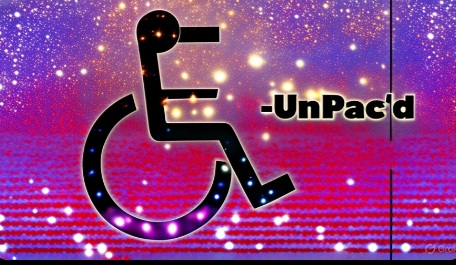
Unilever. A household name, a global giant, and a cesspool of corporate fuckery. This isn’t just a company with a few skeletons in the closet; it’s a goddamn graveyard of ethical failures. Welcome to part two of our Unilever exposé, a special miniseries within Ce-Unpac’d, because this corporate giant’s scandals are so bloody numerous they demanded their own damn spotlight.
In part one, we ripped the lid off Unilever’s mercury poisoning in India, their plastic pollution disaster, the sexual harassment in Kenya, the ethnic violence they ignored, their racist marketing, the palm oil destruction, and their greenwashing lies. But guess what? There’s more. So much more that we had to split this shit into a miniseries. Buckle up, because part two is about to get even uglier.
Price-Fixing Cartel: Screwing Over Consumers
Let’s kick off with a classic corporate sin: price-fixing. Back in 2011, Unilever got slapped with a €104 million fine by the European Commission for playing dirty in the laundry detergent game. They teamed up with Procter & Gamble and Henkel to fix the prices of washing powder across eight European countries from 2002 to 2005. What does that mean? It means you, the consumer, were paying more for your bloody laundry soap because these greedy bastards decided to rig the market.
Oh, they cooperated with the investigation, got a 10% discount on their fines, but let’s not kid ourselves – this wasn’t a one-off mistake. This was a calculated move to squeeze every last penny out of your pocket. And while they were counting their cash, you were left wondering why your grocery bill kept creeping up. Fuck that.
Delayed Exit from Russia: Profits Over Principles
Fast forward to 2022. Russia invades Ukraine, and the world watches in horror. Companies like Apple and Levi’s pull out of Russia, saying, “We won’t support this shit.” But Unilever? Nah, they decided to stick around, supplying locally produced food and hygiene products like nothing happened. Ukraine called them out, labelling them an “international sponsor of war” in 2023, estimating they were pumping £579 million a year into Russia’s economy. That’s blood money, plain and simple.
It took until October 2024 for Unilever to finally sell their Russian business to Arnest Group, but only after campaigners and shareholders dragged them kicking and screaming. Two years of profiting off a war zone. Where’s the morality in that? Spoiler: there isn’t any.
Child Labour in Supply Chain: Kids Paying the Price
Now, let’s talk about the kids. Yeah, children as young as eight, working in hazardous conditions on palm oil plantations in Indonesia, supplying Unilever through Wilmar. That’s according to a 2016 Amnesty International report. And it doesn’t stop there. Back in 2003, Unilever was accused of buying cotton seeds from Indian farmers who had six-year-olds working long hours in dangerous conditions.
These aren’t just statistics; these are real kids, robbed of their childhoods, so Unilever can keep their supply chains cheap and their profits fat. It’s sickening. And while they spout off about their “commitment to human rights,” the reality is a far cry from their polished PR statements.
Violence Against Striking Workers: Rubber Bullets and Broken Promises
In 2019, Unilever showed their true colours again, this time in Durban, South Africa. Workers went on strike, demanding fair treatment, and what did they get? Security forces, hired by Unilever, allegedly attacking them with rubber bullets, pepper spray, and paintballs. Four workers injured, two filing criminal cases. The Food and Allied Workers’ Union called it a “brutal” attack on peaceful picketers.
This is what happens when you stand up to Unilever: they don’t negotiate; they escalate. It’s not just about profits; it’s about power, and they’ll use force to keep it.
Colonial Legacy: A History of Exploitation
And if you think this is all recent, think again. Unilever’s roots are steeped in colonialism. Their predecessor, the Royal Niger Company, was knee-deep in the colonisation of Nigeria, controlling trade and resources, exploiting local populations for profit. This isn’t ancient history; it’s the foundation Unilever was built on. The same company that now preaches about “sustainability” and “ethics” got its start by pillaging Africa.
It’s a legacy of exploitation that still casts a shadow over their operations today. And until they reckon with that past, their promises are just empty words.
The Reckoning
Unilever’s track record is a MESS. From price-fixing to child labour, their actions have caused real harm to people and the planet. It’s time for them to clean up their act and start taking responsibility for their actions, and to clean up supply chains in both developed and developing nations. Until then, we’ll keep digging, keep exposing, and keep fighting for a better world.
Lee Thompson – Founder, The Cummins Accountability Project
Sources:
